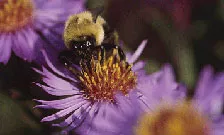VESA
Valuing ecosystem services in agriculture – a way towards efficient decision making
Currently farmers or other agricultural decision makers do not, in a systematic way, incorporate the value of ecosystem services to support their decisions to develop a sustainable food and bioenergy production system.
The goal of the project is to develop multi level decision support tools, able to visualise the ecological and economic potential consequences of different alternative management options and policies on the value of ecosystem services given uncertainty about the future. Such support tools aims to help farmers and decision makers to assess which management actions and combinations of policies will best promote achievement of long term sustainable food and bioenergy production systems.
The project build on cross-disciplinary research achievements at the Centre for Environment and Climate Research, where methods for quantifying and valuing ecosystem services and also evaluating incentives and proposed measures according to their cost-effectiveness have been developed. To ensure the end-user needs (decision makers at different levels) the project will be enveloped within a participatory design process where a close interaction will be developed between scientists and end-users.
The project uses agriculture in Scania, South of Sweden, as a case study of how and in which ways knowledge of the value of ecosystem services can be communicated and discussed and transformed into concrete decisions by farmers, county boards and national bodies.
The ambition is that the project in the long run will be able to support the achievement of the environmental objectives; A Varied Agricultural Landscape, Zero Eutrophication, Reduced Climate Impact Good Quality Groundwater, A Rich Diversity of Plant and Animal Life through informing decisions at relevant levels.
VESA – a collaboration project
The project is a collaboration between Lund University and the Swedish Agricultural University SLU and consist of five researchers. Hushållningssällskapet as a Swedish farm advisor body are also a part of the project.
VESA is a three year project 2014–2016 financed by the Swedish Environmental protection Agency as a part of its special focus on research to facilitate the inclusion of the value of ecosystem services in societal decisions.
Vision
The over all vision of the project is interact with decision makers at local, regional and national levels to produce “decision support tools” that will explicitly show the value of ecosystem services in developing more sustainable agriculture and achieving Sweden’s environmental
Objectives
The specific research objectives are to;
At national level
evaluate the costs and benefits to society of different agricultural land management practices when including the value of ecosystem services and their contribution to achieving Sweden’s environmental objectives, to valuate the need for policy instruments to provide farmers with incentives to optimize ecosystem services under different scenarios about the future, particularly climate change.
At regional level
use an agent-based model (AgriPoliS) to evaluate the aggregate effects of different land management practices and policy instruments on levels of ecosystem services and cost-effective attainment of Sweden’s environmental objectives.
At local level
develop a web-based decision support tool (C-bank) to be used by farmers and advisors alike for valuing ecosystem services as natural capital at the farm level; and thereby inform management decisions. The tool will quantify the long-term consequences of different management options from both a farmer welfare and ecosystem service perspective.
Integrative activity
Develop a participatory design process, which is able to stimulate the development of decision support tools that are able to communicate the value of ES and biodiversity in agricultural land management decisions; and support the formulation of agricultural and environmental policies at the regional and national levels.
Research and working themes within VESA
The project consist of three themes as well as one integrating team focusing on the integrative proves between researchers and endusers.
- National level evaluation of the benefits of different agricultural land management practices
- Regional level agent-based modelling
- Local level web based decision support tool (C-Bank)
- Participatory design process
Contact VESA
Project coordinator
Katarina Hedlund
Centre for Environmental and Climate Science, Lund University
katarina [dot] hedlund [at] biol [dot] lu [dot] se (katarina[dot]hedlund[at]biol[dot]lu[dot]se)
+46 46 222 37 98
